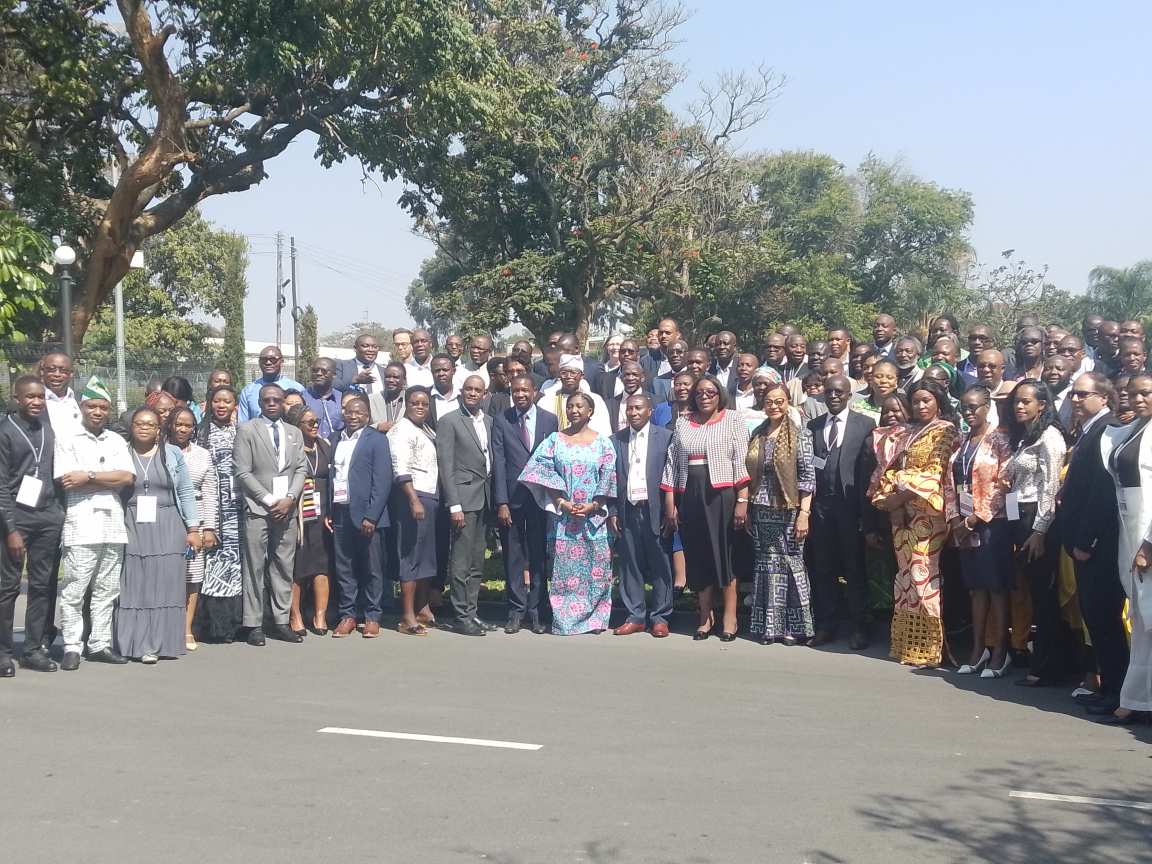|
Getting your Trinity Audio player ready...
|
Yvonne S. Mpundu, Zambia’s Permanent Secretary (administration) in the Ministry of Agriculture has said the success of the Post-Malabo process requires the accelerated implementation of policies and programs.
She made the address in her keynote address during the official opening of a validation workshop for the Most-Malabo Comprehensive Africa Agriculture Development Programme (CAADP) Agenda for technical working groups held at the Intercontinental Hotel in Lusaka, Zambia.
The pivotal meeting marks a significant milestone in the collective efforts to transform the continent’s agricultural sector, bolster food security, and drive sustainable economic growth.
She said the journey under the Malabo Declaration has been a testament to the unwavering commitment to agricultural transformation. The goals outlined in the Malabo Declaration aimed at achieving agriculture-led economic growth, and ending hunger, and halving poverty by 2025.
The meeting in Lusaka assesses progress, identifies challenges, and charts a way forward to ensure the meeting and exceeding of the ambitious targets.
Ms Mpundu acknowledged the significant strides made Across Southern Africa. There has been commendable progress in areas such as agricultural productivity, market access, and food security.
Zambia is implementing various programs aimed at improving agricultural outputs. To ensure food security, Zambia has implemented the Farmer Input Support Program (FISP) providing access to quality seeds, fertilizers, and other essential inputs to smallholder farmers, contributing to improved food security. The Zambia Agricultural Research Institute (ZARI) has developed and disseminated improved crop varieties that are more productive and resilient.
In recent times Zambia has gone a step further to implement the Sustainable Agriculture Financing Facility enabling farmers to have access to the much-needed finance to boost agricultural production.
Investments in agriculture have contributed to improved food security. The diversification of crops and the promotion of nutritious food production have been crucial in this regard. Recognizing the pivotal role of youth and women in agriculture, Zambia has implemented targeted programs to support their involvement and leadership in the sector. This has not only boosted agricultural productivity but also fostered social inclusion and equity.
Addressing the same gathering, H.E. Amb. Josefa Sacko, African Union Commissioner for Agriculture, Rural Development, Blue Economy and Sustainable Development said the CAADP has become an Agenda 2063 flagship programme and the pivotal framework for catalyzing agricultural transformation across Africa.
“The Malabo Declaration, adopted in 2014, built upon the Maputo Declaration, introducing substantial modifications and ambitious commitments. These include eradicating hunger, reducing malnutrition, halving poverty by 2025, tripling intra-African trade, and enhancing resilience to climate change and other shocks,” Commissioner Sacko said.
She noted that while a lot of advances have been made through the process, including the Biennial Review Process which is the first of its kind in the world, AU Member States are far from realizing the seven Malabo commitments as shown by the Fourth Biennial Review Report. This calls for robust interventions to support member states in building a resilient agricultural sector amid a global food crisis.
Commissioner Sacko reiterated that the Post-Malabo CAADP Agenda presents a pivotal moment for reshaping Africa’s priorities. While building upon CAADP’s existing strengths, it will strategically adapt to tackle emerging challenges and align with global trends.
“We must develop evidence-based solutions that can be scaled across the continent. Drawing lessons from our progress thus far will enable us to craft a strong post-Malabo CAADP agenda that builds on the successes and addresses the gaps in the current framework,” she added.






